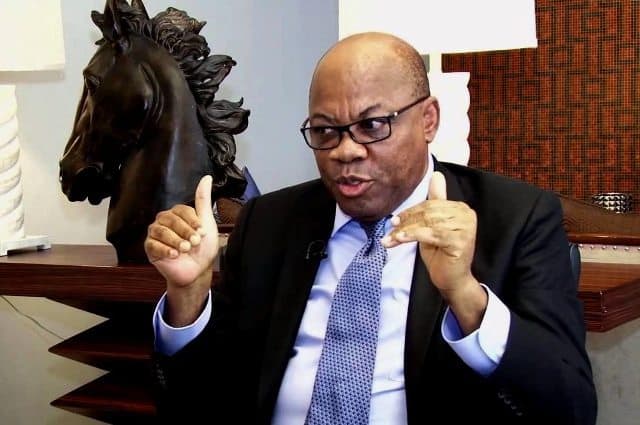
Renowned human rights activist and lawyer, Femi Falana has strongly contested Olisa Agbakoba’s assertion that the Economic and Financial Crimes Commission (EFCC) is an “unlawful organisation.”
In a letter dated October 17, 2024, addressed to Senate President Godswill Akpabio and House Speaker Tajudeen Abbas, Falana argued that lawyer Agbakoba’s claims lack substantial backing.
“Our attention has been drawn to separate letters addressed to the Senate and House of Representatives… entitled: ‘Re: Urgent Legislative Attention on Constitutional Reforms Relating to Law Enforcement Agencies and Anti-Corruption Efforts.’
Agbakoba argued that the power under which the EFCC was established exceeds the powers of the National Assembly,” Falana wrote.
Falana countered, “Convinced that the Economic and Financial Crimes Commission is ‘an unlawful organisation’ because it was ‘unconstitutionally established,’ Agbakoba stated that he was pleased to see many states challenging the constitutionality of the EFCC.”
However, Falana noted that Agbakoba failed to cite any supporting cases.
“Even though Dr. Agbakoba did not refer to any particular case, he claimed that the Supreme Court has often criticised the EFCC. On the contrary, the Supreme Court has consistently supported the efforts of both the ICPC and EFCC in combating the miasma of monumental corruption in the country,” Falana stated.
READ ALSO: “EFCC Unconstitutionally Established” – Ex-NBA President, Agbakoba
Falana cited the landmark case of Attorney-General of Ondo State v Attorney-General of the Federation & Ors (2022), where the Supreme Court upheld the constitutional validity of the Independent Corrupt Practices and Other Related Offences Commission Act.
He emphasized that the National Assembly has the sole power to establish and regulate authorities for the federation or any part thereof to promote and enforce the nation’s responsibility to abolish all corrupt practices and abuse of power.
Falana criticized some State governments for seeking to frustrate the Federal Government’s anti-graft initiatives.
He urged the National Assembly to seize the opportunity provided by the ongoing Constitution amendment to resolve questions about the legality of the EFCC and the ICPC.
“Instead of ensuring that the EFCC, ICPC, and Code of Conduct Bureau serve as ‘common agencies’ of the people of Nigeria in combating monumental corruption, some state governments have shown a tendency to terminate grave economic and financial crimes by filing nolle prosequi applications.
“In light of the foregoing, we urge members of the National Assembly to take advantage of the ongoing constitutional review to end the diversionary debate about the validity of the EFCC Act and ICPC Act by entrenching both in the Constitution,” he said.
Falana concluded, “In other words, if both commissions are constitutionalised, they will be protected and strengthened to fight the menace of corruption and money laundering.”




